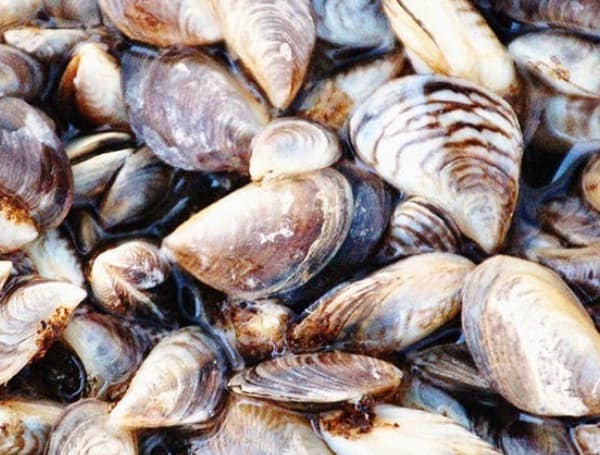The Florida Fish and Wildlife Conservation Commission (FWC) is asking for the public’s help in stopping the spread of the invasive zebra mussel. This
The Florida Fish and Wildlife Conservation Commission (FWC) is asking for the public’s help in stopping the spread of the invasive zebra mussel. This species might cause devastating impacts to Florida’s ecology and economy, and has recently been discovered in a Florida pet store and stores in other parts of the country.
The FWC is working with state and federal partners to address this national issue.
Zebra mussels are considered one of the most troublesome invasive species in North America. They clog pipelines used for water filtration, render beaches unusable and damage boats. They also can have harmful effects on native aquatic organisms.
These filter feeders outcompete other native species in infested rivers and lakes. The waste they produce accumulates and degrades the environment, using up oxygen, making the water acidic and producing toxic byproducts.
Zebra mussels and their microscopic larvae have been found in a species of aquarium plants known as “moss balls” that are being sold in some pet stores under a variety of names throughout parts of the United States, including Florida.
The moss balls are up to a few inches in diameter and are sold separately as an aquarium plant or may be provided with a fish being sold. Because the larvae might not be noticeable in the aquarium material, any purchased moss balls can contain zebra mussels or their larvae.
The FWC is urging pet stores to remove “moss ball” aquarium plant products from their shelves and properly dispose of them. If an aquarium owner has already bought one of these moss balls, they should safely dispose of it. The safest way to do this is by completely drying, freezing or placing the moss balls into a plastic zipper bag. Then throw that bag into a garbage bag.
Aquarium water should be replaced, and filters/cartridges replaced and disinfected before disposal. Aquarium water can be disinfected prior to disposal by adding one cup of bleach per gallon and allowing it to sit for 10 minutes before disposing of the water down the drain. This method can also be used to disinfect gravel, filter, and other structures, and is highly recommended if zebra mussels are found attached to the moss or in the aquarium.
Zebra mussels are a small shellfish with triangular, brownish shells. As their name implies, they often have zebra-like stripes. They typically grow no bigger than an inch in size and some found in the pet store plants are less than a quarter of an inch long.
Subscribe to our newsletter!


COMMENTS